
CoRe project
Bruce Peninsula National Park
On the Road to Recovery at Bruce Peninsula National Park
What is CoRe?
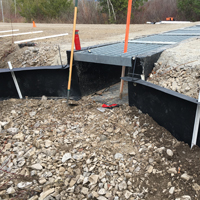
CoRe stands for Conservation Restoration. The Parks Canada CoRe program provides funding for national parks with a significant conservation concern. On the Road to Recovery is a two-year CoRe project from September 2017 to September 2019. We will be completing our project goals in collaboration with the Saugeen Ojibway Nation and the Municipality of Northern Bruce Peninsula.
What is On the Road to Recovery all about?
On the Road to Recovery addresses the key environmental threats associated with roads which impact multiple species at risk within Bruce Peninsula National Park.
There are four main areas of focus for the project:
1) Make our roads safer for wildlife, especially reptiles and amphibians
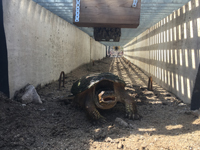
- Every year, hundreds of reptiles and amphibians are run over on roads within Bruce Peninsula National Park. To help prevent this, Eco-passages and exclusion fencing are being installed along road mortality 'hotspots' within the park - locations where a high number of reptiles and amphibians have been run over by vehicles. The Eco-fencing prevents turtles, snakes, frogs, salamanders, and smaller mammals from crossing roadways, and guides them towards specially designed Eco-passages. Together, the fencing and passages allow species to cross underneath the busy roads safely.
- Seven Eco-passages have been installed in total on Cyprus Lake Road, Emmett Lake Road, and Dorcas Bay Road.ad.
- In park areas with high levels of turtle nesting activity, artificial nesting sites are being created. These allow turtles to nest near their chosen habitat, without crossing roads.
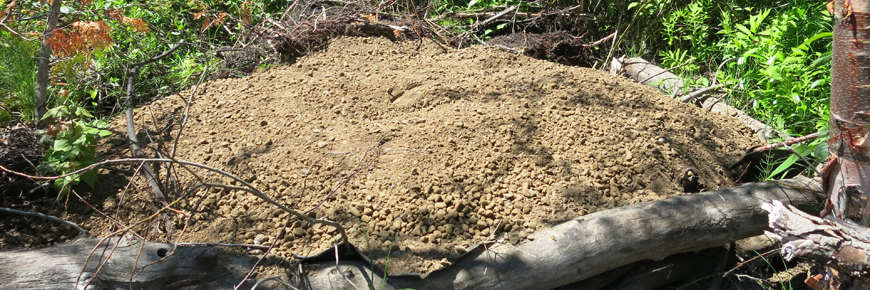
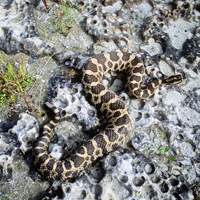
2) Educate the public about road ecology issues and living with Massasauga rattlesnakes
- On the Road to Recovery is helping to increase awareness of road ecology issues through social media, interpretive programs, signs and displays, and outreach activities. As well, we are working to make people feel more comfortable living alongside Massasauga rattlesnakes - a commonly misunderstood species!
3) Develop a new citizen science volunteer program to monitor and protect turtle nesting sites
- Citizen science means getting visitors and community members involved with hands-on scientific projects at Bruce Peninsula National Park. Our citizen science program is working to monitor and protect turtle nests and hatchlings within the park.
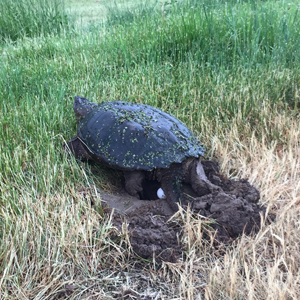
A snapping turtle laying eggs. (Chlelydra serpentina).
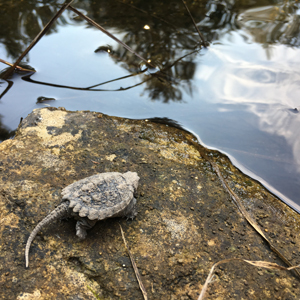
4) Improve habitat in Dorcas Bay Creek
- Dorcas Bay Creek is an important area for reptiles and amphibians to feed and overwinter. It is also home to Brook trout, a native coldwater fish species. The creek is close to roads, which can impact water quality. The water in Dorcas Bay Creek will be monitored for temperature changes, the presence of invasive species, and other potential issues. Additionally, the riparian habitat (transitional land on either side of the creek) will be restored with native vegetation, acting as an effective "buffer" between the road and the creek.
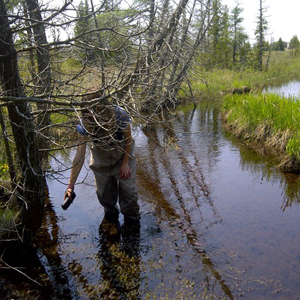
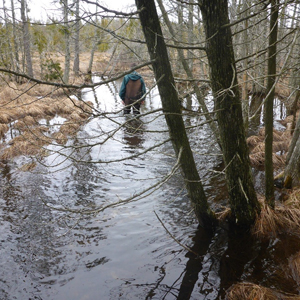
Park staff conducting temperature assessments in Dorcas Bay Creek at different times of year.
- Date modified :